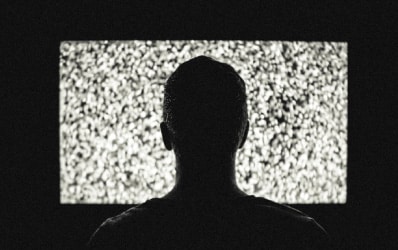
These classic questions have one thing in common: They are things, maybe even better-called myths, people believe, or previously believed, about their eyesight. But is there any truth to them?
Just as in many aspects of our health, there are myths and misconceptions about our eyes and eyesight. Here are some of the most common misconceptions about eye care explained:
1. Can too much time spent looking at screens – computers, tablets, and smartphones – be a problem?
Yes. The American Optometric Association (AOA) says that too much time on digital screens can cause Computer Vision Syndrome (CVS), also known as Digital Eye Strain. Symptoms include:
- Headaches
- Blurry vision
- Dry eyes
- Neck and shoulder pain
Even if your computer is set up at the proper ergonomic distance from your eyes. The Occupational Safety and Health Administration recommends 20-40 inches with their computer workstation eTool. think about how you use your other devices:
- Do you hold the screens too close to your eyes?
- Are you slouched in an easy chair or curled up on the couch?
- Are you texting or playing games despite the glare on your screen?
Give your eyes a break! The AOA recommends the 20/20/20 rule, which means 20 seconds of looking at something 20 feet away for every 20 minutes on an electronic screen.
2. Can reading glasses substitute for prescription glasses?
Not really. It’s easy to see the large displays of reading glasses in pharmacies or grocery stores and wonder if you can get by without having your eyes checked or buying prescription glasses. In reality, reading glasses only help with the deterioration of near vision that commonly happens to people as they begin to age.
If your only problem is reading small type up close – on a medicine label, for instance, or a restaurant menu – reading glasses may work just fine. But don’t go too long without getting your regular eye exam. Reading glasses don’t correct for astigmatism, the optical centers may not be the perfect distance from your pupils, and your eyes may not need identical strength in lenses.
3. Can too much time in bright sunlight give you cataracts?
Yes, over time. The culprit is the ultraviolet (UV) light from the sun, which can increase the rate of cataracts, growths on the eye, and (although rare) certain forms of cancer. The American Academy of Ophthalmology says UV-blocking sunglasses and hats should be worn whenever people are outdoors. They include babies and toddlers in that recommendation.
4. Is it okay, in an emergency, to put your contact lens in your mouth and then re-insert it in your eye?
Never! Between the bacteria in your saliva and the bacteria on your hands, this is never a recommended practice. Make it a habit to always carry a case, saline solution, and your glasses with you, or leave spares in your car, handbag, and desk drawer.
5. Do people need to get their eyes checked more often as they get older?
Yes. In addition to checking your actual eyesight, your eye doctor is also checking for cataracts, eye diseases, and testing for glaucoma. Comprehensive eye exams are recommended every one to two years, depending on your age, risk factors (such as diabetes or family history of glaucoma), and whether or not you wear corrective lenses.
6. Is it true that only boys can be color-blind?
No. However, colorblindness is much more likely in males because the gene that causes the most common inherited form of the condition (red-green color blindness) occurs on the X-chromosome. Females have two X-chromosomes, which gives them double the chances of having a functional gene, but males only have one. The rate is about 8 percent for males and only 0.5 percent for females.
7. Can a person use eye drops too often?
It depends. Prescription eye drops should be used only as prescribed. Simple wetting drops (also called artificial tears) that are nothing but saline solution can’t really be overused, though if you feel like you need them too often you may want to ask your eye doctor about the possibility of Dry Eye Syndrome.
Drops that get rid of redness in the eye are basically decongestants, which work by constricting swollen blood vessels in the eye. They can irritate the eye if used too often. Follow the directions on the bottle, check out any possible drug interactions, and make sure you are using them only occasionally.
8. Will eating carrots improve your eyesight?
Other foods or supplements high in Vitamin A can also help promote healthy eyesight. Carrots are rich in beta-carotene, which the body uses to make Vitamin A. Specifically, Vitamin A fortifies the cornea and helps people to see better in low-light conditions. In fact, Vitamin A deficiency can cause total blindness. But don’t think that more is always better; a balanced diet and/or a vitamin supplement will provide plenty, and the body rids itself of any excess.
9. If you cross your eyes, could they stay that way?
No. Despite your parents’ admonitions or playground myths, the act of momentarily crossing one’s eyes cannot override the eye muscles that ordinarily keep the eyes aligned. However, if a child’s eyes cross by themselves, this is a condition called strabismus, and it needs medical attention.
10. Can sitting too close to the television hurt your eyes?
No. This myth is rooted in the early days of television, when TV sets emitted low levels of radiation that, with too much exposure, could increase the risk of eye problems in some people. But radiation has not been an issue for a long time, and certainly not with modern televisions. Watching too much television might have an adverse effect on some parts of your life, but your eyesight isn’t among them.

